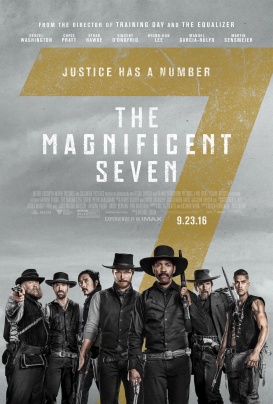Even though I wrote a little over a thousand words last week on my experiences with Doctor Strange [required reading for this blog post] there were a couple of additional criticisms I wanted to level against both that specific film and the industry as a whole. While I covered pretty thoroughly how Asians were poorly represented in Marvel Studio’s latest offering, what I didn’t really touch on was why.
When Diversity Means Painting With All the Colour of the Wind
In the months leading up to the release of Doctor Strange the conversation about the Ancient One’s casting began heating up. With mainstream news outlets picking up on the controversy there were many waiting to hear from the creators themselves, which brings us to the episode of the Double Toasted podcast that guest starred screenwriter C. Robert Cargill.
While his explanations regarding the character have since been championed by those defending the casting decision, even after his rescinding all comments made, and in spite of them being refuted by others, in particular by Shaun of the No, Totally! podcast, what I want to focus on are what he says right after that:
Now if you don’t want to actually listen to him, which I find perfectly understandable, I’ve also transcribed the relevant quote [emphasis added]:
“But when you start to see this film you’ll see that what we were able to do with Kamar-Taj, we made one of the most multicultural films most people have seen in years. Like this film is [. . .] I’m not certain that there’s a single major race that isn’t represented with a speaking role in this film. It allowed us to bring in, even as small characters to build upon later, a lot of characters from the Doctor Strange universe who come from all over the world. We were able to play with a lot of things and it gave us a lot to work with.”





 This is the second installment of “Free State of Mind”, a series of Q&As with the cast and crew of a South African film currently making the rounds at film festivals. You can read my review
This is the second installment of “Free State of Mind”, a series of Q&As with the cast and crew of a South African film currently making the rounds at film festivals. You can read my review 
“You Might as Well Have [insert character here] Be [insert 2-4 minority types here]!”
One of the most common adages on the internet is “don’t read the comments”. While this global network that we’re all currently using [unless you somehow managed to snag a printout of this post] has given us all the ability to share and discuss everything under the sun, the unfortunate truth is that a lot of that conversation amounts to hot garbage. You could scroll down past an article to see what people are saying about it, but chances are that it won’t be a particularly uplifting experience.
As someone who spends much of his time online reading about entertainment there’s a type of comment that I’ve seen crop up time and time again. It’s existence ties directly into a lot of the recent trends in comic books, television, and film, the push towards inclusivity and the people who are actively working to make that happen. A perfect example [of a handful I’ll be referencing throughout this article] is:
“disabled, multiracial trans women with disfiguring facial scars” – posted on “There are more (white) women starring in movies than ever before”
I’ve been compiling these for the past few months, originally with the intent of putting together another “For Your Consideration” and allowing readers to look them over and come to their own conclusions. A general [and accurate] takeaway would be to note them as being typical of inane online comments and move on, but I’d like to spend a little time breaking down the idiocy they represent.
They Perpetuate the Default
The default person, in case you needed to be informed of who generally holds the most power and screentime across the board, is a straight able-bodied cisgendered White man. I’m painfully aware that simply listing those words in successive order like that marks me as being one of the SJWs [my thoughts on that term here], but every one is important to take note of.
Take the following:
“black Asian gay lesbian transgender Spider-man” – posted on “Dear HOLLYWOOD REPORTER: May We Have a Word About ‘Cultural Appropriation’?”
To look at the list and mark it against the checklist of what makes a default human being, in the eyes of at least a few, we have:
Other comments I’ll be including later on will add examples that include disabled people, but the general gist of every one capitalizes on the absurdity of a person who doesn’t match the standard cutout. A straight able-bodied cisgendered White woman? Not a terrible strain of the imagination. Once you start to tick off more items that don’t coincide with the norm, however, things apparently get a lot shakier.
I don’t even think that many of these commenters are aware of the implicit message behind the words they type. By listing these adjectives and identifiers they end up with a person who most of them share absolutely nothing in common with, which exposes the very reason we need diversity at all. Everyone should be able to relate to entertainment, and for too long the industry has catered to an audience that gets smaller every day. Continue reading →
Rate this:
1 Comment
Posted in comics, film, gender, internet, lgbt, race, television
Tagged believable, black, character, comment, comments section, complaints, default, disabled, diversity, gay, internet comments, lesbian, lgbt, marginalized, minority, possibility, race, realistic, representation, straight, Transgender, transgendered, visibility, white, why not have